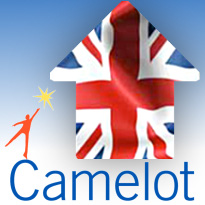Everything you wanted to know about the Camelot Group

Who stays behind the Camelot Group
The National Lottery is one of the most important organizations of this type in Europe, and the one that awards some of the most generous prizes to lottery players. Camelot group is the company in charge of running the games, and the designated operator for more than a decade. They’ve done a fine job in consolidating their dominant position, and they are the overwhelming favorites for receiving the third consecutive license.
Achievements and controversy
When it was created 13 years ago, Camelot Group was a consortium whose purpose was to win the bid and the group proved to be more than a match for the competition. Immediately after winning the rights for operating the National Lottery project the officials were accused of being greedy and directing a significant amount of money towards paying for high salaries. A string of technical problems led to the license being stripped from Camelot, and it was about to be awarded to its rival The People’s Lottery.
Camelot took legal actions and justice sided with this company, so the process was reset with them eventually being awarded the franchise. The audience was stunned and for many years, Camelot tried to shatter the doubts by being more transparent and addressing controversial salary issues. In 2009 they were awarded the second license and since then, they have successfully reduced the operational costs by 25%. Now they‘re the front-runners for the third license despite some recent setbacks associated to ticket prices.
Income and prize structure
There are a couple of things that help Camelot stand out from the crowd, but not all the reasons for why they are special among lottery operators are desirable. It can all be better explained by taking a look at the payout structure and understanding how the money collected by selling tickets is split between beneficiaries. Winners receive 50% while Camelot settles for ten times less, with only 0.5% being their profit. The amount is nothing to frown upon, giving the fact that millions are collected each week.
With 28% being offered to Good Causes, Camelot Group has built a strong reputation and players found it easier to accept the fact that the ticket price was doubled this year. The authorities keep 12% as taxes every year while the chain of retailers is also receiving 5% for their dedication and perseverance. One of the threats for these vendors is the prospect of lottery tickets to be sold online sometime in the future, as this will end their monopoly. For the time being this is not a real threat as Camelot Group has no intention to expand online or to change the payout structure in any way.
Check out the Camelot Lottery Scam now.